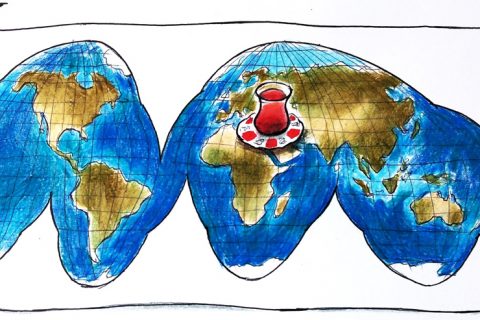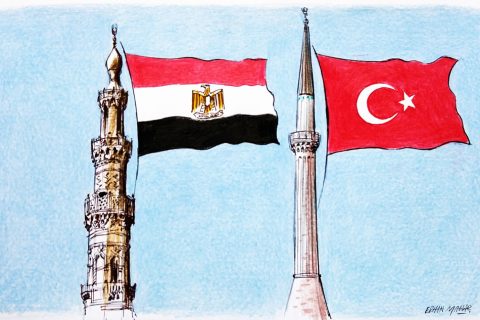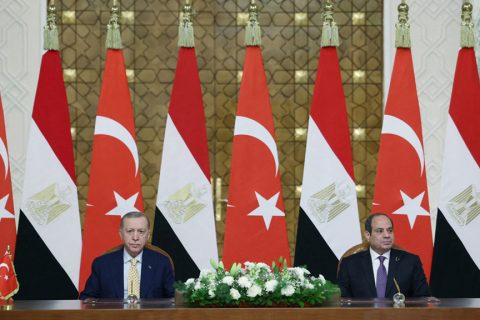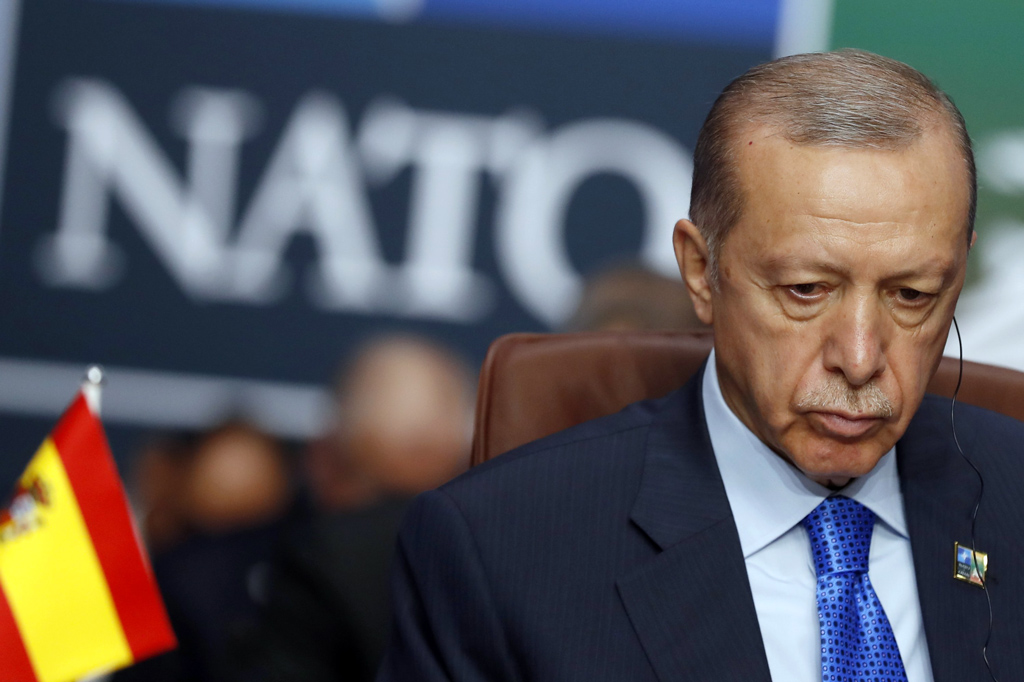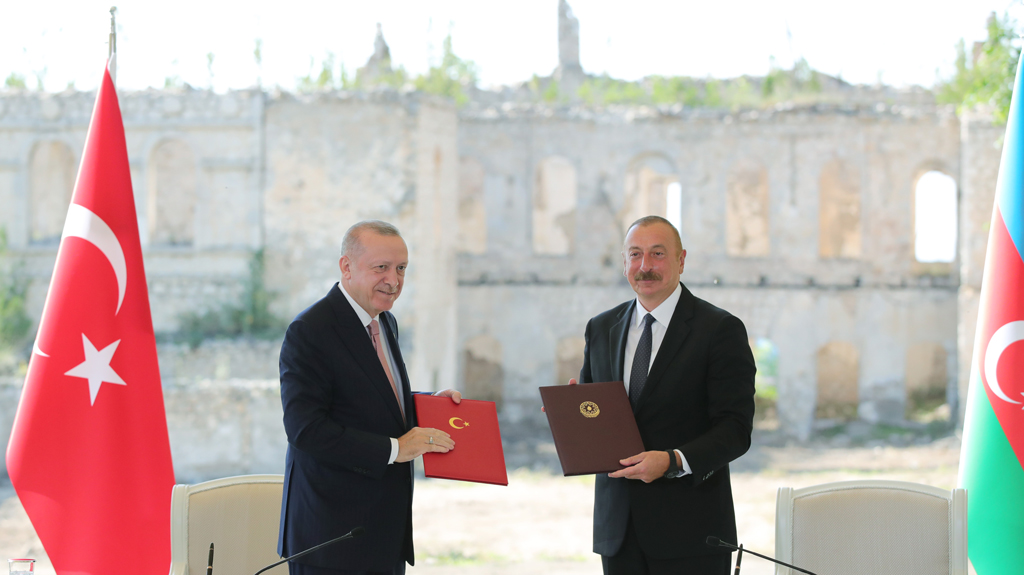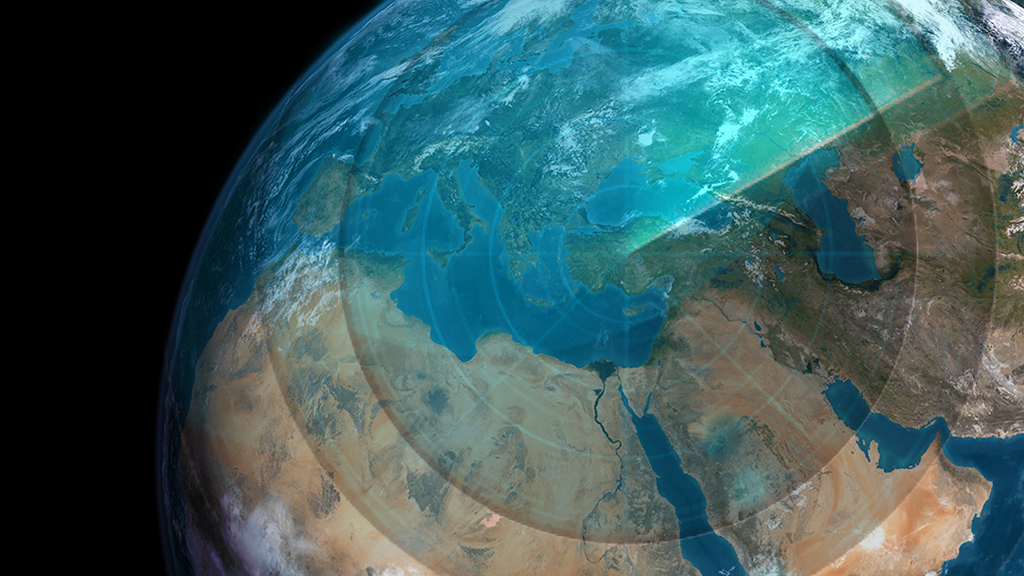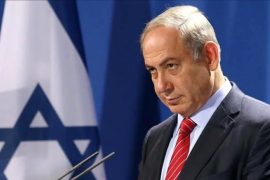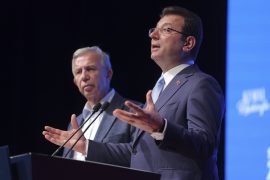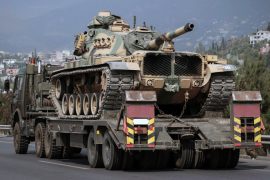Turkish Foreign Policy

Significant momentum in Turkish foreign policy
| OpinionTürkiye’s foreign policy has been gaining momentum in recent months as a series of developments …
-
Opinion
Türkiye’s position in multipolar world landscape
By Burhanettin DuranThe debate on Turkish foreign policy's "axis," "strategic autonomy" and "normalization" policy was recently revived by Parliament's approval of Sweden's NATO membership, President Recep Tayyip Erdoğan's Cairo trip and Türkiye joining the European Sky Shield Initiative.
-
Opinion
Türkiye’s diplomatic normalization efforts to yield key alliances
By Burhanettin DuranPresident Recep Tayyip Erdoğan's visit to Egypt marked the completion of yet another stage in Türkiye's normalization policy. The two countries thus agreed to brush aside their 12-year disagreement in an attempt to join forces anew. There is little sense in bringing up past statements to talk about concessions and U-turns.
-
Opinion
Türkiye-Egypt normalization: Historic milestone in bilateral ties
By Murat YeşiltaşTürkiye and Egypt stand at a pivotal historical moment in the evolution of their bilateral relations. Following 12 years marked by rivalry and conflict, the visit of President Recep Tayyip Erdoğan to Egypt has the potential to open a new chapter in Ankara-Cairo relations. This visit offers both nations the opportunity to forge a novel model of cooperative relations on numerous contentious issues. More importantly, it could herald the onset of strategic cooperation in the realms of defense and security, areas in which such collaboration was previously nonexistent. Before the joint news conference in Cairo, the two leaders signed the Joint Statement on the Restructuring of High-Level Strategic Cooperation Council Meetings, signifying both countries’ readiness to recalibrate their relations.
Bu Konuda Daha Fazla
-
Turkish defense minister reaffirms commitment to revival of Black...
By SETAThe Turkish national defense minister affirmed Wednesday the ongoing commitment of Türkiye to revitalize the Black Sea Grain deal.
-
Where is Turkish foreign policy headed in 2024?
By Burhanettin DuranAs uncertainty, competition and conflict gain momentum within the international system, Türkiye engages in diplomacy to play a more defining role in global and regional crises.
-
Azerbaijan and the Rise of Turkic Unity: The Journey...
By Farid ShafiyevThis commentary delves into the evolution of the Organization of Turkic States (OTS), highlighting its transformation from a consultative mechanism to a robust international entity with geostrategic significance. The paper examines key developments such as the Shusha Declaration, the impact of the Second Karabakh War, and the strategic partnership among Turkic states in the context of global geopolitical dynamics. The paper focuses on Azerbaijan’s vision of the development of the Turkic unity, some historical aspects, which preceded the idea of the Turkic unity, and contemporary trends in the regional and global politics, which gave impetus to the enhancement of the OTS. The conclusion highlights the importance of Turkic unity as it stands out more prominently in the complex geopolitical environment and posits that trends make it necessary to strengthen and develop cooperation among the Turkic states.
-
SETA Security Radar: Türkiye’s international and regional agenda
By Murat YeşiltaşThe current international landscape is experiencing a profound transformation, marked by escalating crises and increasing globalization of conflicts. Amidst intensifying global and regional competition and growing uncertainties, we find ourselves in an era of widespread anxiety. Predicting the future in such times is a formidable challenge, yet it’s crucial to envision what the world of tomorrow might resemble. Addressing today’s challenges requires both study and foresight. "SETA Security RADAR: Türkiye’s Geopolitical Landscape in 2024" aims to project the future trajectory of Türkish foreign, security, and defense policies in light of current dynamics.
-
SETA Security Radar | Türkiye’s Geopolitical Landscape in 2024
By Murat Yeşiltaş By Bilgehan Öztürk By Gloria Shkurti Özdemir By Murat Aslan By Kutluhan Görücü By Mehmet Devrim By Mehmet Çağatay Güler By Tunç Demirtaş By Sibel Düz By Rıfat ÖncelIn this new volume of SETA Security Radar, we analyze the main dynamics shaping Türkiye’s security and geopolitical landscape with references to the most significant foreign policy and security issues throughout 2023.
